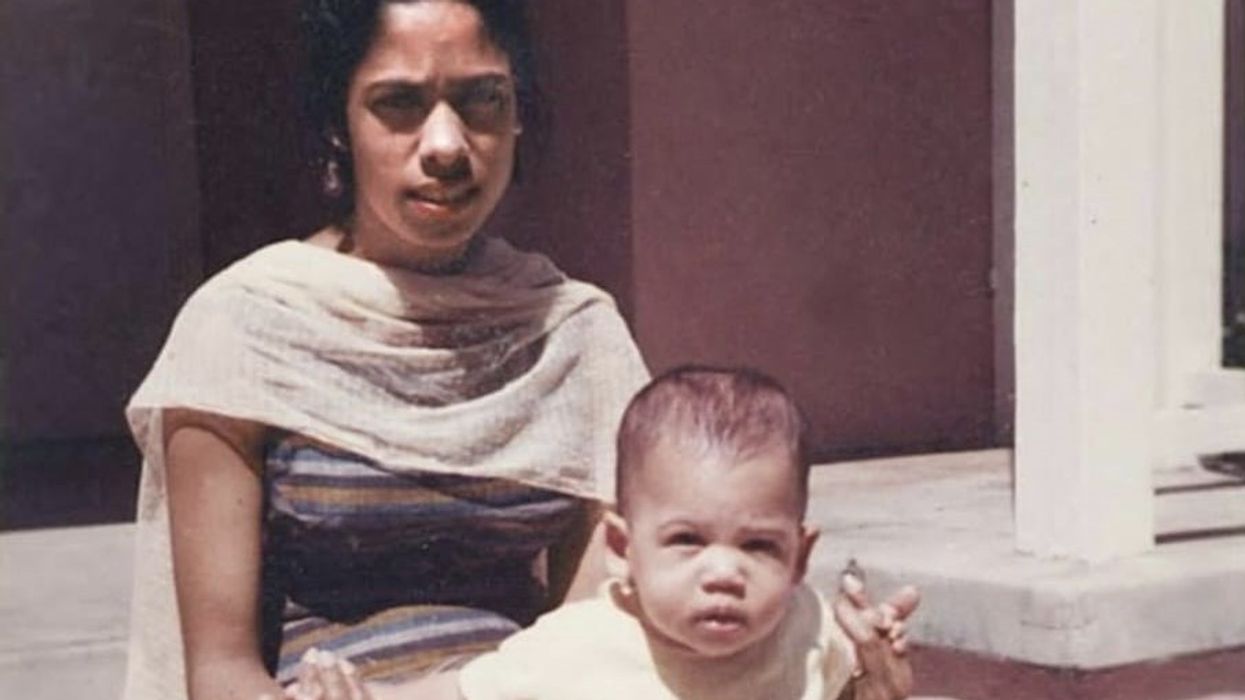KAMALA HARRIS paid a heartfelt tribute to her trailblazer mother, Shyamala Gopalan, reflecting on the values she instilled in her and expressing how much she misses her, particularly at this pivotal moment in her career.
On Thursday (22) night, Harris, who has both Indian and African heritage, accepted the Democratic party’s presidential nomination at the Democratic National Convention in Chicago, becoming the second woman to receive this honour for the party, following Hillary Clinton.
In her speech, Harris spoke of her “unexpected” rise to the top of the Democratic ticket after president Joe Biden’s decision to withdraw from the race in July. She acknowledged that the path leading her to this moment was unforeseen but not unfamiliar, saying, “I’m no stranger to unlikely journeys.”
Harris also shared personal memories of being raised by her mother, whom she described as “a brilliant 5-foot tall brown woman with an accent.” She recalled the strength and determination her mother displayed, having traveled alone from India to California at the age of 19 with a dream of becoming a scientist who would cure breast cancer.
“My mother Shyamala Harris had one of her own. I miss her every day – especially now. And I know she’s looking down tonight, and smiling,” she said.
Harris said her mother was 19 when she crossed the world alone, travelling from India to California with an unshakeable dream to be the scientist who would cure breast cancer.
“She was tough, a trailblazer... She taught us to never complain about injustice, but to do something about it! Do something about it. That was our mother,” Harris said. “And she also taught us to never do anything half-assed. And that is a direct quote. A direct quote.”
The vice-president added that her mother was set to return home to have an arranged marriage but met her father, Donald Harris, a student from Jamaica, and fell in love.
“That act of self-determination made my sister Maya and me,” Harris said.
“Well, my mother had another lesson she used to teach. Never let anyone tell you who you are, you show them who you are,” Harris said.
“America, let us show each other and the world who we are and what we stand for: freedom, opportunity, compassion, dignity, fairness, and endless possibilities.”
But following the couple’s divorce when Harris was in elementary school, she was raised by a single mother in the “flatlands” of the Bay, Harris recalled and highlighted the community spirit that helped shape her.
"...It was mostly my mother who raised us. Before she could finally afford to buy a home, she rented a small apartment in the East Bay. In the Bay, you either live in the hills or the flatlands. We lived in the flats – a beautiful working-class neighbourhood of firefighters, nurses, and construction workers, all of whom tended their lawns with pride," said Harris.
“My mother worked long hours, and like many working parents, she leaned on a trusted circle to help raise us,” Harris said, naming those who helped take care of her. She described them as “none of them family by blood and all of them family by love," she said.
She said Americans “have so much more in common than what separates us” and that “none of us has to fail for all of us to succeed.”
She also wished her husband, Doug Emhoff, a happy anniversary at the top of her remarks. Thursday was the couple’s 10th wedding anniversary.
“Let me start by thanking my most incredible husband, Doug, for being an incredible partner to me, an incredible father to Cole and Ella. And happy anniversary, Dougie. I love you so very much,” Harris said.
If elected, Harris would break one of the highest glass ceilings left for women in the United States – that of occupying the country's top office.
On the final night of the Democratic National Convention, her sister Maya also recounted the story of their mother, whom she described as a “civil rights activist, a scientist, a devoted mother to her little girls” and a “trailblazer who defied the odds and defined herself.”
“She raised us to believe that we could be and do anything. And we believed her. You see, mommy understood the power and the possibility that come with knowing and showing who you truly are,” Maya Harris, a lawyer, said.
“Mommy’s journey and the opportunity she wanted for Kamala and me, is a distinctly American story,” she said.
Maya, 57, said her sister has devoted her life to fighting for people.
She said Harris “has created so much electricity, so much optimism, so much joy throughout the nation and it is why we need her leadership in this historic moment.”
She urged voters to elect “a leader who sees the potential in each of us, a leader who cares for all of us, a leader who fights for every one of us — our Democratic nominee, my big sister, the next president of the United States, Kamala Harris!” (PTI)




